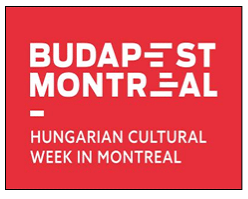 I have been thinking about morality from a very early age (partly, no doubt, because my parents were survivors of the Holocaust in which much of my family was killed).
I have been thinking about morality from a very early age (partly, no doubt, because my parents were survivors of the Holocaust in which much of my family was killed).
I don’t know at what age I began thinking about it, but I do know that I became a vegetarian when I turned 17, and that it was because it was only then that I found out that it was possible; I would have done it much earlier if I had known. I don’t blame myself for not having inquired and found out earlier then, but I do blame myself for not having inquired and found out until almost 50 years later that it was possible to be a vegan too.
I am not a believer in gods or the supernatural (apart from a very brief period when I was very young). I am a naturalist.
And I know that nature (i.e., physical laws and Darwnian evolution) are amoral, i.e., psychopathic. The only criterion is (morally blind) causality. Nothing matters. There is no good or evil, right or wrong. In the biological realm, causality has led to mechanisms that engender survival and reproduction.
In the causal system that has evolved in the earth’s biosphere, at some time, and for some cause as yet unknown but no doubt related to survival and reproduction, sentience evolved. And with sentience, the capacity for pain and pleasure. Organisms feel.
Hence morality, too, evolved only then. Not just with the capacity for feeling, but also with the capacity for empathy (feeling for the feelings of others) — mainly present in organisms toward their young, and especially pronounced in mammals and other K-selected species.
Apart from that, there is no law, either physical or mathematical, that engenders, dictates or adjudicates morality, apart from whatever causal forces that led to the evolution of sentience, and of empathy and altruism, no doubt in the service of survival and reproduction. That also means there is no rational basis for morality, if “rational” means deduction or justification via reasoning (assuming that reasoning means inferences based on logic and evidence).
Logic can indicate what follows formally from what (from axioms to theorems). Empirical evidence can indicate what is probably the case in the world. But neither of them can engender or dictate morality, because both the object and the subject of morality is feeling (sentience) itself. Without feeling there is no morality.
What do feelings have to say about morality? Only one thing. It is wrong to hurt. From this it follows that it is right to minimize hurt. Nothing follows about pleasure, at least not morally, except where being deprived of pleasure hurts.
The rest is all about determining what minimizes hurt. And that necessarily requires inferences, predictions, hypotheses. If there were a way to know when we have a valid hypothesis about how to minimize hurt, then the rest is just implementation and can perhaps be described as applied negative utility calculations.
But pleasure (other than pain from pleasure-deprivation) has no place at all in the moral equation, any more than mass, momentum or position do.
The only border case is painless euthanasia, and for this I can only propose the ad hoc moral intuition that depriving a sentient organism of its life needlessly is much the same thing as hurting it.
The mission of all animal advocates (indeed of all those who are concerned with right and wrong) should be to minimize pain in sentients. (Nothing to do with pleasure, or maximizing pleasure.)
“Speciesism” is a misnomer, in an effort to liken animal mistreatment to racism. There is some validity to the intuition, but it does not generate a general principle, because if applied to all sentients based on numbers, it could lead to absurd (and immoral) conclusions such as: euthanize all sentients other than the most numerous ones, insects, in order to minimize overall net pain (if we bracket the ecological uncertainty).
So “minimize” hurt needs another constraint, based on conflicts of vital interest: Minimize needless hurt, where “need” refers to vital needs in cases of conflicts of vital interest.
And since humans are the only species that are in the position to conceive or implement moral principles, their own vital interests must take some sort of relative (but not absolute) precedence (otherwise we are again left with the strictly numerical option of euthanasia and insects).
To summarize: By my lights, morality is rational, but it is not based on rationality. It is based on sentience (feelings) and on feelings about the feelings of others: the moral intuition that hurting is wrong. The only feelings that are morally relevant are negative ones: hurt. (We have intuitions about pleasure too, but they are not moral intuitions, except if somehow correlated with pain.)
And I would repeat that if pure selfishness — obliviousness to the hurting of others in the pursuit of one’s own interests, vital and non-vital — is psychopathic (much the way Darwinian evolution and physical causality are psychopathic), so to is pure selflessness — obliviousness to proximity, consanguinity and collateral damage — in the strictly numerical dispensation of net welfare across sentient organisms (and time) according to formal calculations. (Purely formal calculations are as psychopathic as causality and evolution.)


 Hard to say whether “
Hard to say whether “



 I have been thinking about morality from a very early age (partly, no doubt, because my parents were survivors of the Holocaust in which much of my family was killed).
I have been thinking about morality from a very early age (partly, no doubt, because my parents were survivors of the Holocaust in which much of my family was killed). Video:
Video: 

